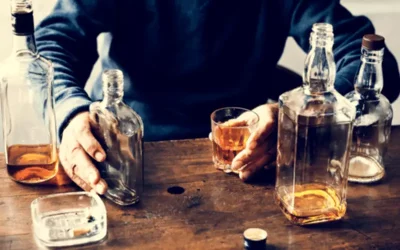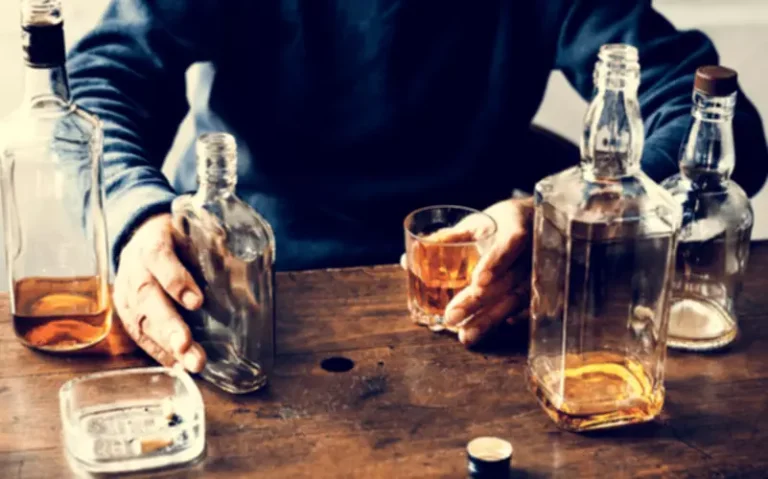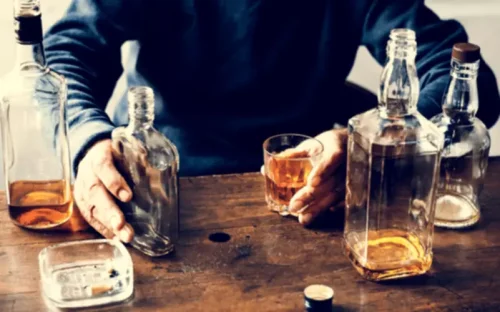
AA is a group of fellow recovering alcoholics who use the 12 steps and sponsorship to hold you accountable and offer you a daily reprieve from alcohol dependency. According to Twelve Steps and Twelve Traditions (1981), “Our admissions of personal powerlessness finally turn out to be firm bedrock upon which happy and purposeful lives may be built” (p. 21). But the terminal stages of addiction will strip everything away, and an addicted person who refuses to recover will often be left with nothing.
Feeling Powerless Is A Major Factor In Addiction

For many of us, this is a hard truth to accept because it challenges our pride and the illusion of control. However, admitting powerlessness allows us to start rebuilding a life free from the chaos of alcohol addiction and substance abuse. The concept of powerlessness in Alcoholics Anonymous (AA) is at the powerless over alcohol heart of the 1st Step and a transformative realization in twelve-step recovery. Admitting we are powerless over alcohol and other drugs means recognizing that our lives are no longer manageable under the control of addiction. This acknowledgment is the key to breaking free from substance use disorders and beginning a recovery program that offers hope and healing.

How Craving Distinguishes Alcohol Abuse from Casual Use

This step serves as a beacon of hope for those struggling with addiction, reminding them that they are not alone and that a network of individuals stands ready to support and uplift one another. One of the most remarkable aspects of Step One is its enduring impact throughout the recovery journey. It equips individuals with the tools to navigate the challenges that arise, helping them resist the temptations of addiction, manage stress, and cope with relapses when they occur. This step remains relevant in every stage of recovery, continually reinforcing the principles of humility, surrender, and self-awareness. Another way to overcome powerlessness is to get involved in your own treatment.

Examples of Powerlessness Over Alcohol
- Work through each one and you’ll be well-positioned to recover from your addiction to alcohol.
- This can lead to a cycle of lies, both for you and for the family members who attempt to understand or excuse your behavior.
- Acceptance comes when we feel a profound sense of hope and peace in coming to terms with our addiction and recovery.
- At that point, you may discover it’s easy to move on to Step 2 of AA—and all the ones that follow.
After enough pain, it did not take long before I had opiates back in my hand and absolutely no idea where it all went wrong. The main criterion for a successful First Step is a person’s acceptance that they do, indeed, have the disease of addiction. A person shouldn’t consider themselves weak-willed or incapable when they admit to their powerlessness, and they don’t have to drug addiction do anything about their addiction yet.
- Admitting we were powerless doesn’t leave us hopeless—it empowers us to transform.
- The accountability and encouragement in meetings and therapy break the power of secrecy where addiction thrives.
- Try making a list of experiences in your life where you notice the phenomenon of craving and another list where you experienced the mental obsession that caused you to drink or drug.
- This belief is what gives them hope and helps them stay sober.
- Taking a second look back over the unmanageability – okay I could agree with that, but then came the part about being powerless.
- If you’re passionate about putting a halt to your alcohol consumption, AA membership is available to you.
Their willingness to admit to having no power usually happens after they have repeatedly failed to control their intake or they have hit rock bottom, losing everything that’s important to them. People usually spend some time trying to moderate their drinking or drug use, maybe quitting for a few days or even months before slipping right back into their old behavior. AA meetings are helpful for many individuals in recovery from alcohol addiction.

- The self-awareness that comes with realizing how bad things are and how damaging the substance abuse has been is how you can start to desire a better future for yourself.
- Signs of an unmanageable life can be broken down into 2 different categories, internal and external factors.
- It empowers individuals to confront their addiction, embrace their vulnerabilities, and embark on a journey of healing and renewal.
- Having had a spiritual awakening as the result of these Steps, we tried to carry this message to alcoholics, and to practice these principles in all our affairs.
While admitting powerlessness over a substance may seem at odds with efforts to hold addicts responsible for their behaviors, the opposite is true. By accepting that you’re powerless over alcohol, drugs or addictive behavior, you’ve come to terms https://ecosoberhouse.com/ with your personal limitations. Step One marks the beginning of a lifelong commitment to connection, support, and personal growth. As individuals continue to work through the 12 steps, their understanding of powerlessness and unmanageability deepens, offering inspiration and guidance to others on their recovery journeys.
